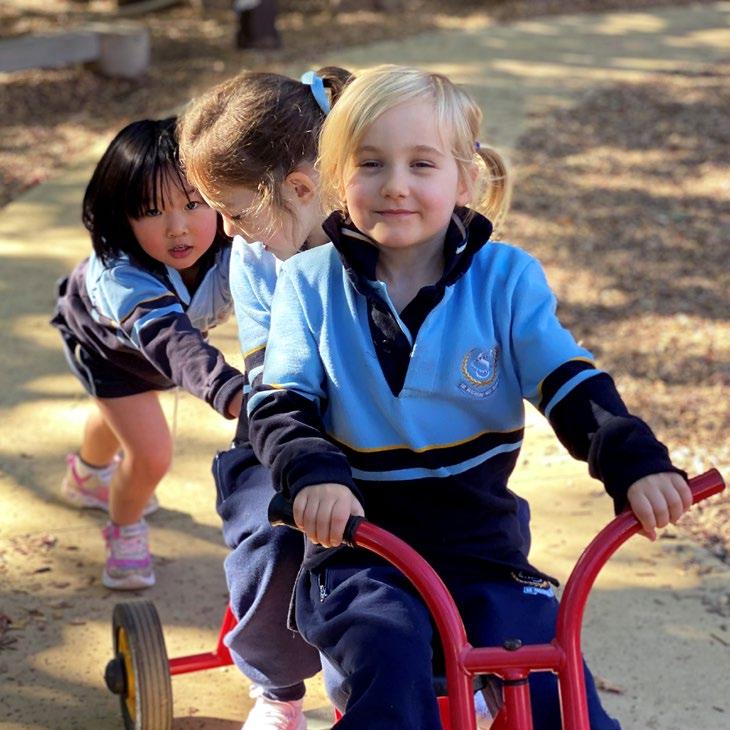
3 minute read
Ms Sarah Bethune Building Resilience
Current Year 12 student, Zara Carter is interested in a career in the media, with plans to study Film and TV courses. Zara loves the opportunity film making provides her to guide audiences through narratives – transporting the viewer into another world and evoking different emotional states. Zara is fascinated by how and why the media constructs and reflects reality and, how audiences engage with, consume, and produce media products. She is also curious about how current technologies such as social media, have created a landscape in which anyone can be a viewer, producer, and influencer of media content. Zara’s VCE short film, examining the complex relationship between a father and daughter, along with other Years 9, 10, 11 and 12 Media products, will be exhibited during the St Catherine’s School 125 Art Show from 10 to 15 September in the Senior School Hall.
Mrs Vicki Marinelli & Ms Julia West
Head of Arts & Media Teacher
Name: Ms Sarah Bethune Title: Head of ELC Date: 6 August 2021 Strategic Intent: Wellbeing & Leadership

BUILDING RESILIENCE
All children will experience obstacles and challenges as part of their everyday lives. Resilience is the ability to bounce back when these challenges or setbacks occur. It is important children begin to develop resilience from a young age, as it builds their confidence and helps them to feel more prepared for the next time, they encounter a challenge. Young children build resilience over time and with experience. “Building resilience helps children not only to deal with current difficulties that are part of everyday life, but also develop the basic skills and habits that will help them deal with challenges later in life, during adolescence and adulthood.” Beyond Blue When things do not go well, children can feel anxious, sad, disappointed, afraid, or frustrated. Resilience helps them to understand these uncomfortable emotions do not last forever and they can work through them. Relationships are integral to building resilience. Strong, positive relationships with family and educators help children to feel safe, secure, and loved. This sense of security provides the child confidence to explore their world and recover from any setbacks they may experience. Children learn resilience through experience. Each time they overcome a problem, it builds their confidence and skills to manage the next challenge. Resilient children are often more willing to try, even if things do not go the way they had hoped. They have the confidence and problem-solving skills to work their way through a range of different situations. Here are some examples of how children can build resilience:
Encourage Independence
Provide your child time and space to solve problems for themselves. Avoid predicting and preventing problems for your child as you will be denying them the opportunity to learn and grow. Ask questions and bounce the problem back to the child, then brainstorm solutions together. Children will demonstrate how competent and capable they can be when given the opportunity.
Identify, Acknowledge and Manage Emotions
Help your child to identify and manage their emotions. Talk to them about how they are feeling and acknowledge those feelings. For example, “It’s okay to be feeling sad because we can’t visit Grandma now. What could you do to tell Grandma how much you miss her?”
Promote a ‘Can Do’ Attitude
Encourage your child to have a go or try again when they think they cannot do something or, when things do not work out the first time. As adults we need to promote the importance of trying or “having a go” and acknowledge the child’s efforts.
Embrace Mistakes
It is important children understand it is okay to make mistakes and that it is how we learn and grow. This should be modelled and promoted with young children. Our aim is to promote a growth mindset.










